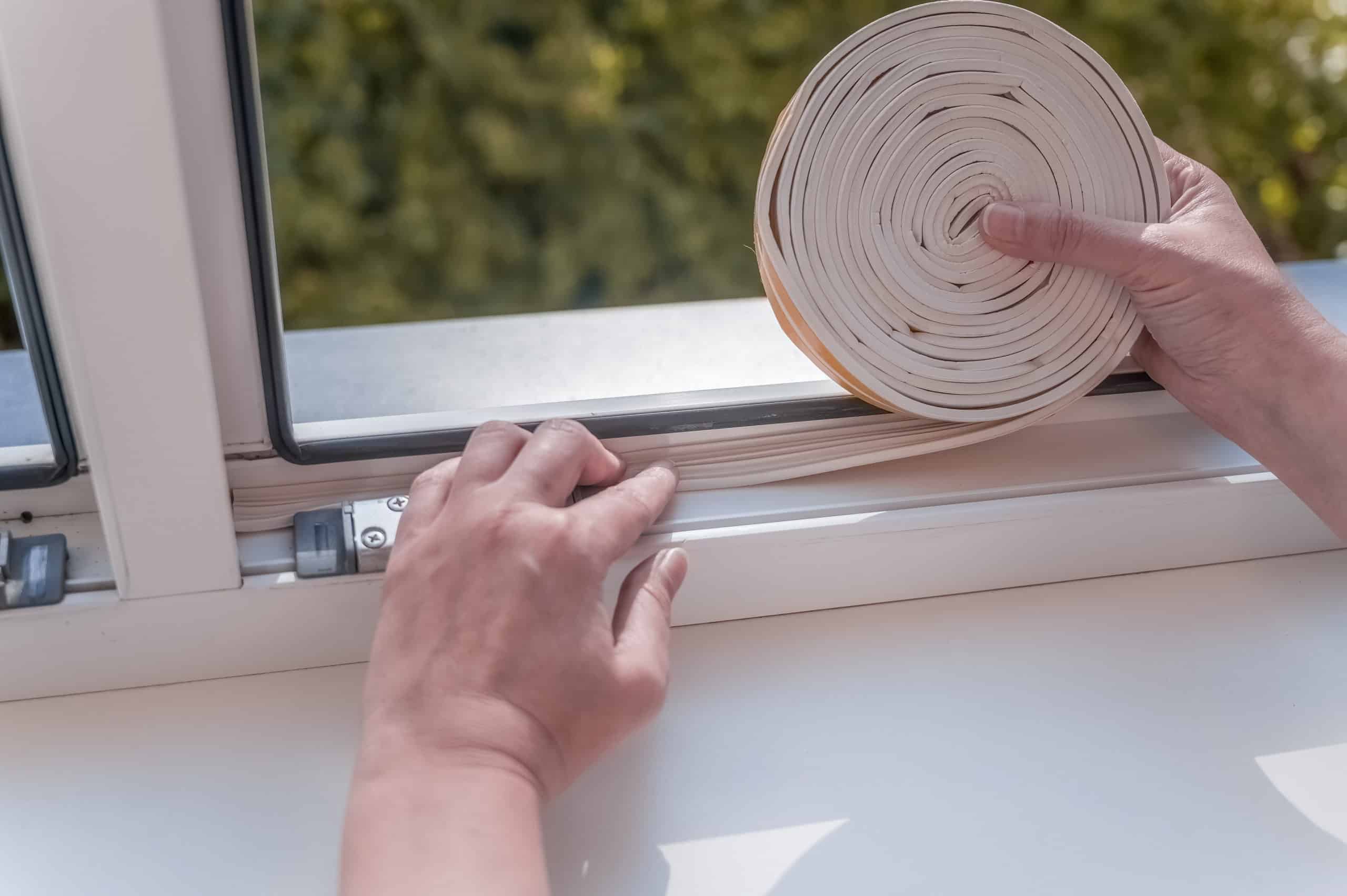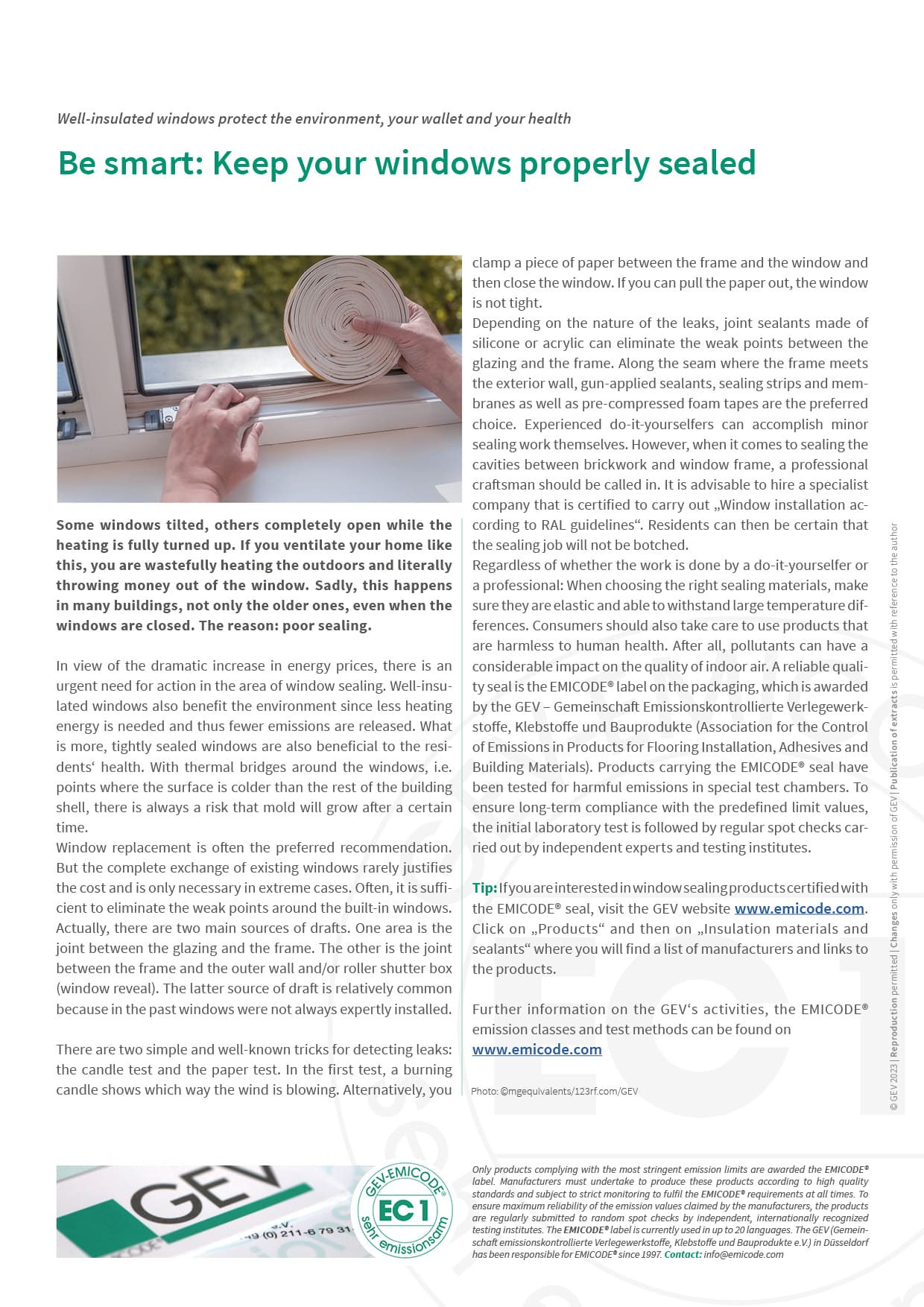Be smart: Keep your windows properly sealed
Well-insulated windows protect the environment, your wallet and your health
Some windows tilted, others completely open while the heating is fully turned up. If you ventilate your home like this, you are wastefully heating the outdoors and literally throwing money out of the window. Sadly, this happens in many buildings, not only the older ones, even when the windows are closed. The reason: poor sealing.
In view of the dramatic increase in energy prices, there is an urgent need for action in the area of window sealing. Well-insulated windows also benefit the environment since less heating energy is needed and thus fewer emissions are released. What is more, tightly sealed windows are also beneficial to the residents’ health. With thermal bridges around the windows, i.e. points where the surface is colder than the rest of the building shell, there is always a risk that mold will grow after a certain time.
Window replacement is often the preferred recommendation. But the complete exchange of existing windows rarely justifies the cost and is only necessary in extreme cases. Often, it is sufficient to eliminate the weak points around the built-in windows. Actually, there are two main sources of drafts. One area is the joint between the glazing and the frame. The other is the joint between the frame and the outer wall and/or roller shutter box (window reveal). The latter source of draft is relatively common because in the past windows were not always expertly installed.
There are two simple and well-known tricks for detecting leaks: the candle test and the paper test. In the first test, a burning candle shows which way the wind is blowing. Alternatively, you clamp a piece of paper between the frame and the window and then close the window. If you can pull the paper out, the window is not tight.
Depending on the nature of the leaks, joint sealants made of silicone or acrylic can eliminate the weak points between the glazing and the frame. Along the seam where the frame meets the exterior wall, gun-applied sealants, sealing strips and membranes as well as pre-compressed foam tapes are the preferred choice. Experienced do-it-yourselfers can accomplish minor sealing work themselves. However, when it comes to sealing the cavities between brickwork and window frame, a professional craftsman should be called in. It is advisable to hire a specialist company that is certified to carry out “Window installation according to RAL guidelines”. Residents can then be certain that the sealing job will not be botched.
Regardless of whether the work is done by a do-it-yourselfer or a professional: When choosing the right sealing materials, make sure they are elastic and able to withstand large temperature differences. Consumers should also take care to use products that are harmless to human health. After all, pollutants can have a considerable impact on the quality of indoor air. A reliable quality seal is the EMICODE® label on the packaging, which is awarded by the GEV – Gemeinschaft Emissionskontrollierte Verlegewerkstoffe, Klebstoffe und Bauprodukte (Association for the Control of Emissions in Products for Flooring Installation, Adhesives and Building Materials). Products carrying the EMICODE® seal have been tested for harmful emissions in special test chambers. To ensure long-term compliance with the predefined limit values, the initial laboratory test is followed by regular spot checks carried out by independent experts and testing institutes.
Tip: If you are interested in window sealing products certified with the EMICODE® seal, click on “Products” and then on “Insulation materials and sealants” where you will find a list of manufacturers and links to their products.

Photo: ©mgequivalents/123rf.com/GEV
Materials for window sealing such as foam sealing tapes must be elastic and able to withstand large temperature differences. Moreover, they should be harmless to health and carry the EMICODE® seal.
Do You Have Questions?
If you have any questions on certain topics or want to contact us for another reason, please contact us by phone or email.
Phone: +49 (0)211 843 449 – 01
info@emicode.com
Share article on Social Media:

